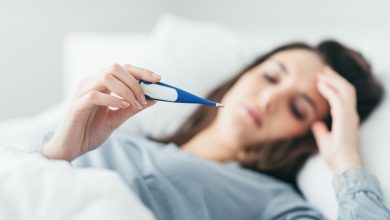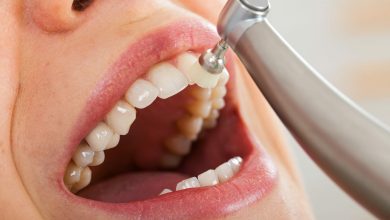How Often Should I Get a Dental Cleaning: Expert Recommendations

You should get a dental cleaning every six months for optimal oral health. Regular dental cleanings are crucial for maintaining the health of your teeth and gums, preventing gum diseases and cavities, and detecting any oral health issues early on.
By adhering to this recommended frequency, you can ensure that your teeth and gums stay in top condition, promoting overall well-being. Along with daily oral hygiene practices like brushing and flossing, regular cleanings can help prevent plaque buildup, tartar formation, and other dental problems.
By prioritizing regular dental cleanings, you can preserve your oral health and prevent more extensive and costly dental procedures in the future.
Importance Of Regular Dental Cleanings
Regular dental cleanings are important for maintaining optimal oral health. Getting your teeth professionally cleaned at least twice a year can offer a multitude of benefits. Firstly, dental cleanings help to remove plaque and tartar build-up that may not be fully removed by your daily brushing and flossing routine. This can prevent gum disease and tooth decay. Secondly, cleanings also include a thorough examination of your mouth, allowing the dentist to identify and address any potential issues at an early stage. Moreover, dental cleanings can also contribute to your overall health as research suggests that there is a link between oral health and certain systemic conditions such as cardiovascular disease and diabetes.
By scheduling regular dental cleanings, you are taking preventive measures to avoid future dental problems. Your dentist can provide personalized advice on proper oral hygiene practices such as brushing, flossing, and using mouthwash. Additionally, they may recommend certain treatments such as fluoride application or dental sealants to further protect your teeth.
Factors Affecting The Frequency Of Dental Cleanings
When considering how often to schedule dental cleanings, it’s important to take into account a few key factors:
Personal Oral Hygiene Habits
Your personal oral hygiene routine plays a significant role in determining the frequency of dental cleanings. Regular brushing, flossing, and using mouthwash can help keep your teeth and gums clean and healthy.
Risk Factors For Dental Problems
Factors such as smoking, alcohol consumption, and poor diet can increase the risk of dental problems. Individuals with these risk factors may require more frequent dental cleanings to prevent or manage oral health issues.
Underlying Health Conditions
Certain medical conditions like diabetes, heart disease, and autoimmune disorders can impact oral health. Patients with these conditions may need more frequent dental cleanings to maintain good oral hygiene and prevent complications.
Discussing these factors with your dentist can help determine the appropriate frequency of dental cleanings for your specific needs. Keep in mind that regular dental cleanings are essential for maintaining optimal oral health and preventing dental problems in the long run.
Expert Recommendations For Dental Cleaning Frequency
Expert recommendations for dental cleaning frequency vary based on individual oral health needs. It is generally recommended to visit a dentist for a dental cleaning at least twice a year. Regular cleanings and check-ups can help prevent tooth decay, gum disease, and other oral health issues. However, some individuals may require more frequent cleanings, especially those with certain risk factors such as smoking, diabetes, or a weakened immune system.
Dental professionals suggest that it is important to consult with your dentist to determine the optimal cleaning frequency for your specific needs. They will assess your oral health and provide personalized recommendations. It is important to note that misconceptions about dental cleaning frequency exist. Some people believe that annual cleanings are sufficient or that they only need to visit the dentist when experiencing oral health problems. However, maintaining regular dental cleanings can help prevent larger issues in the future.
Customizing Dental Cleaning Frequency
Assessing personal oral health needs is crucial in determining how often you should get a dental cleaning. Consulting with your dentist is the first step towards creating a tailored dental cleaning schedule based on individual factors.
Your dentist will assess your oral health, taking into account factors such as the presence of gum disease, previous dental procedures, and overall oral hygiene habits. They will determine the appropriate frequency for your dental cleanings based on their professional expertise.
Regular dental cleanings help prevent plaque buildup, cavities, and gum diseases. Individuals with a higher risk of dental issues may need more frequent cleanings to maintain optimum oral health. On the other hand, those with excellent oral hygiene and low risk factors may require cleanings less often.
By working closely with your dentist and addressing your unique oral health needs, you can establish a dental cleaning schedule that ensures the longevity of your teeth and gums.
Potential Risks Of Infrequent Dental Cleanings
Regular dental cleanings are vital to maintaining good oral health and preventing potential risks associated with infrequent cleanings.
One of the significant risks of infrequent dental cleanings is an increased risk of dental problems. When plaque and tartar buildup on your teeth, they create a breeding ground for bacteria, which can lead to cavities and gum disease. Neglecting regular cleanings can also result in oral health implications, such as bad breath, tooth loss, and gum recession.
Inadequate dental care over the long term can have severe consequences. Untreated gum disease can lead to bone loss, which can weaken the structure that supports your teeth. Additionally, poor dental hygiene has been linked to various systemic conditions, including heart disease, diabetes, and respiratory issues.
To ensure optimal oral health, it is recommended to schedule a dental cleaning at least twice a year, or as advised by your dentist. Regular cleanings help remove plaque and tartar, prevent dental problems, and preserve your beautiful smile.

Credit: galleriadentalalexandria.com
Maintaining Oral Health Between Dental Cleanings
Proper oral hygiene routine plays a crucial role in maintaining oral health between dental cleanings. Regular brushing with a fluoride toothpaste is essential. Brushing twice a day, once in the morning and once before bed, helps remove plaque and bacteria. Flossing daily is equally important to reach areas that a toothbrush can’t. Using a mouthwash can provide additional protection by killing bacteria and reducing bad breath.
Dental care products such as an electric toothbrush can be more effective in removing plaque than manual ones. A tongue cleaner can help remove bacteria from the tongue, reducing halitosis. Interdental brushes are useful for cleaning between teeth and braces. Xylitol chewing gum stimulates saliva production and helps prevent cavities.
After a dental cleaning, it is crucial to follow-up with good dental care practices. Regular dental check-ups should be scheduled every six months or as recommended by the dentist. Eating a balanced diet, limiting sugary and acidic foods and drinks, can help maintain oral health. Avoiding tobacco and limiting alcohol consumption are also important preventive measures for good oral health.
Special Considerations For Different Age Groups
Children and adolescents require regular dental cleanings to maintain good oral hygiene and prevent dental problems. Generally, it is recommended that they receive a dental cleaning every six months. However, the frequency may vary depending on their individual needs and dental health. Some children with specific oral health issues may need more frequent cleanings, while others with excellent oral hygiene may be able to visit the dentist less often. It is best to consult with a pediatric dentist to determine the appropriate cleaning schedule for your child.
For adults, regular dental cleanings are crucial for maintaining oral health. It is generally advised to have a dental cleaning every six months. However, some individuals with certain risk factors, such as gum disease or a history of dental issues, may need more frequent cleanings. Conversely, those with excellent oral hygiene habits and no significant dental problems may be able to extend the interval between cleanings. Your dentist can evaluate your specific needs and provide personalized recommendations for dental cleaning frequency.
Dental care for the elderly and individuals with specific needs:
Elderly individuals and those with specific needs require special attention when it comes to dental care. They may be more prone to dental issues due to factors such as medication side effects, dry mouth, or limited manual dexterity. Regular dental cleanings are important for maintaining their oral health, but the frequency may vary for each individual. Dentists may recommend more frequent cleanings to address their specific needs and prevent potential complications. It is important to work closely with a dentist experienced in geriatric or special care dentistry to establish the most appropriate dental cleaning schedule for elderly individuals and those with specific needs.
Addressing Dental Anxiety And Concerns
- Choosing a dentist who understands your needs and is experienced in treating anxious patients. Look for a dental provider who specializes in anxiety management techniques.
- Open communication with your dental provider is essential. Discuss your fears and concerns before, during, and after the dental cleaning. This will help alleviate anxiety and allow the dentist to tailor the treatment to your specific needs.
- Breathing exercises and relaxation techniques can be helpful in managing dental anxiety. Practice deep breathing and visualization exercises to relax your mind and body.
- If necessary, consider sedation dentistry options. These can include nitrous oxide, oral sedatives, or intravenous sedation to help you feel more comfortable during the cleaning.
- Bring a friend or family member for support. Having someone familiar by your side can provide reassurance and ease anxiety.
Frequently Asked Questions For How Often Should I Get A Dental Cleaning
Do You Really Need Teeth Cleaning Every 6 Months?
Yes, regular teeth cleaning every 6 months is important. It helps prevent dental issues, such as cavities and gum disease. Professional cleanings remove tartar buildup and plaque that can’t be removed by brushing alone. Maintaining good oral hygiene is key for overall dental health.
How Often Should You Go To Dentist For Cleaning?
It is recommended to go to the dentist for cleaning every six months. Regular dental cleanings help maintain oral health and prevent potential dental issues.
Is Teeth Cleaning Every 3 Months Too Much?
Teeth cleaning every 3 months is not too much. Regular cleanings help prevent tooth decay, gum disease, and plaque buildup. They improve oral hygiene and maintain fresh breath. Consulting with your dentist will help determine the ideal cleaning frequency based on your oral health.
How Do You Know When A Tooth Needs Cleaning?
Regular dental cleanings are necessary to maintain good oral health. Signs that a tooth needs cleaning include plaque buildup, tartar formation, bad breath, and bleeding gums. Professional cleanings by a dentist or dental hygienist can remove these issues and prevent further complications.
Conclusion
Regular dental cleanings are essential for maintaining good oral health. By removing plaque and tartar buildup, dental cleanings help prevent gum disease and tooth decay. The frequency of dental cleanings can vary depending on individual needs and risk factors. It’s best to consult with your dentist to determine the recommended interval for your cleanings.
Remember, prevention is key to achieving a healthy and beautiful smile. So, make sure to prioritize regular dental cleanings as part of your oral care routine.





